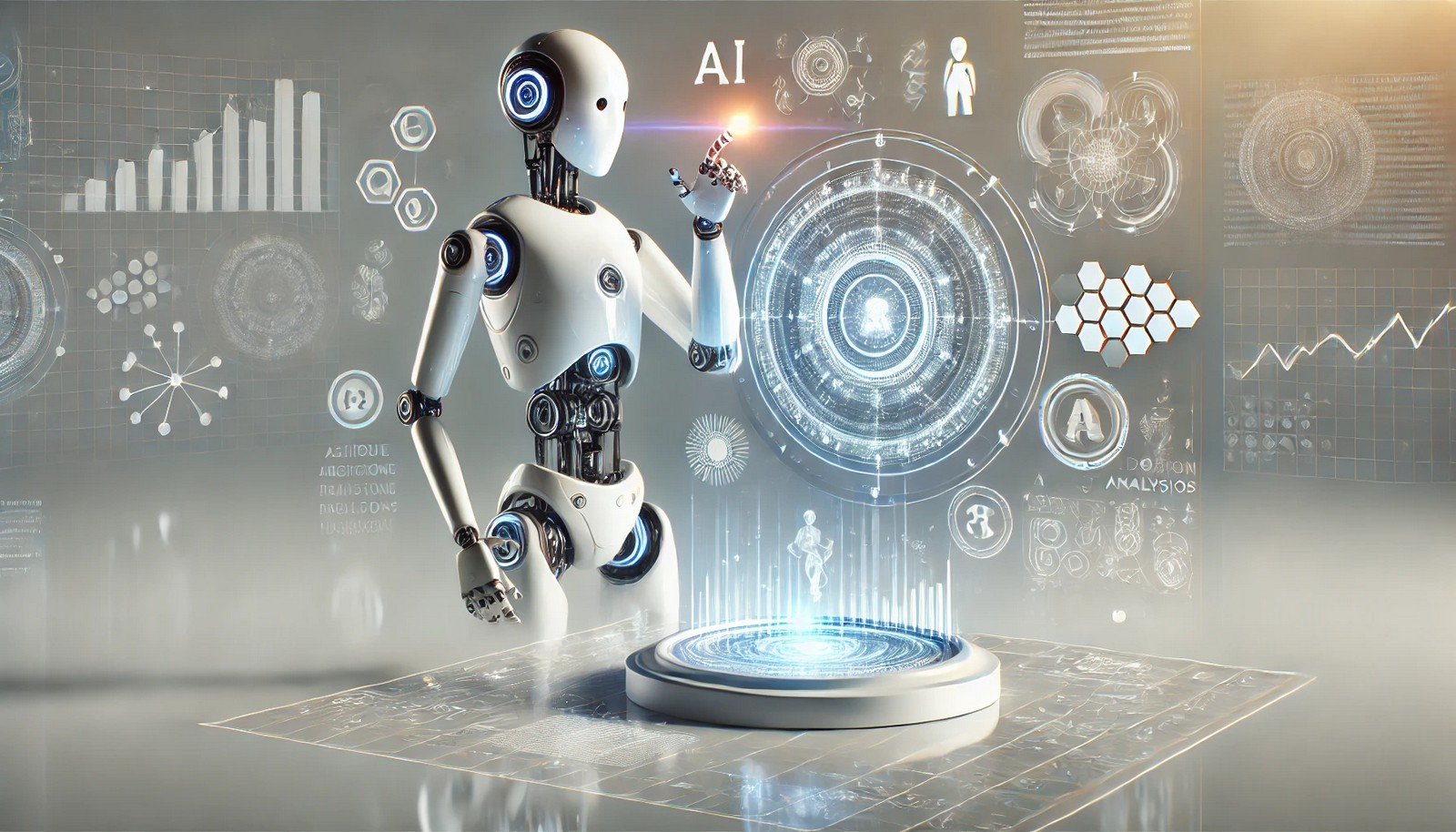AI Intelligent Systems

Quick Navigation:
- AI Intelligent Systems Definition
- AI Intelligent Systems Explained Easy
- AI Intelligent Systems Origin
- AI Intelligent Systems Etymology
- AI Intelligent Systems Usage Trends
- AI Intelligent Systems Usage
- AI Intelligent Systems Examples in Context
- AI Intelligent Systems FAQ
- AI Intelligent Systems Related Words
AI Intelligent Systems Definition
AI Intelligent Systems are advanced computational systems that use artificial intelligence to perform tasks traditionally requiring human intelligence, such as visual perception, language understanding, decision-making, and problem-solving. These systems leverage techniques like machine learning, neural networks, and natural language processing to improve and adapt over time. Examples include self-driving cars, virtual assistants, and personalized recommendation engines.
AI Intelligent Systems Explained Easy
Imagine a robot that can learn like a human! AI Intelligent Systems are like these robots. They can see, listen, and even understand language to do helpful things, just like how a friend might help you find a lost item by listening to you describe it.
AI Intelligent Systems Origin
AI Intelligent Systems began developing with the early research in artificial intelligence in the 1950s, but they gained significant momentum in the 21st century with faster computers and large amounts of data. Today, AI Intelligent Systems power a wide range of technologies, from simple applications like virtual assistants to complex autonomous machines.
AI Intelligent Systems Etymology
The term “AI Intelligent Systems” stems from artificial intelligence, with "intelligent" referring to a system's ability to learn and adapt, and "system" indicating an organized, interdependent structure.
AI Intelligent Systems Usage Trends
AI Intelligent Systems have become more prevalent with the rise of digital data and computational power. They are used across various sectors like healthcare, finance, transportation, and entertainment to automate tasks, improve efficiency, and create personalized experiences. AI's ability to analyze vast amounts of data and generate insights has driven a huge surge in its use for predictive analytics and decision-making.
AI Intelligent Systems Usage
- Formal/Technical Tagging:
- Artificial Intelligence
- Machine Learning
- Neural Networks - Typical Collocations:
- "AI-powered intelligent systems"
- "machine learning-based AI system"
- "intelligent automation through AI"
- "smart AI system for predictions"
AI Intelligent Systems Examples in Context
- Virtual assistants like Siri or Alexa use AI Intelligent Systems to understand and respond to voice commands.
- Autonomous vehicles apply AI Intelligent Systems to navigate roads safely and avoid obstacles.
- AI in healthcare assists doctors by analyzing images and suggesting potential diagnoses.
AI Intelligent Systems FAQ
- What are AI Intelligent Systems?
AI Intelligent Systems are technology systems powered by artificial intelligence to perform tasks that usually need human intelligence. - How do AI Intelligent Systems work?
They use algorithms to process data, recognize patterns, and make decisions based on learned information. - Where are AI Intelligent Systems used?
They're found in healthcare, automotive, finance, retail, and many other sectors. - Are AI Intelligent Systems safe?
With proper regulation and ethical guidelines, AI systems can be safe, though concerns about privacy and bias are considered. - Can AI Intelligent Systems learn on their own?
Yes, many systems use machine learning to improve their performance without explicit programming for each task. - What is an example of an AI Intelligent System?
Self-driving cars are a popular example; they use AI to interpret surroundings and navigate. - Why are AI Intelligent Systems important?
They automate tasks, increase efficiency, and can analyze data to provide valuable insights. - How fast are AI Intelligent Systems evolving?
They’re evolving quickly due to advances in computing power and data availability. - Do AI Intelligent Systems have limitations?
Yes, they require vast data, may struggle with unpredictable situations, and can reflect biases in their training data. - Can AI Intelligent Systems make mistakes?
Yes, AI can make errors, particularly if it's trained on biased or insufficient data.
AI Intelligent Systems Related Words
- Categories/Topics:
- Artificial Intelligence
- Automation
- Machine Learning
Did you know?
AI Intelligent Systems have been integral to space exploration. NASA uses AI to process data from rovers and telescopes, helping to analyze and prioritize scientific findings from other planets, which enhances our understanding of the universe.
PicDictionary.com is an online dictionary in pictures. If you have questions or suggestions, please reach out to us on WhatsApp or Twitter.Authors | Arjun Vishnu | @ArjunAndVishnu

I am Vishnu. I like AI, Linux, Single Board Computers, and Cloud Computing. I create the web & video content, and I also write for popular websites.
My younger brother, Arjun handles image & video editing. Together, we run a YouTube Channel that's focused on reviewing gadgets and explaining technology.



Comments powered by CComment